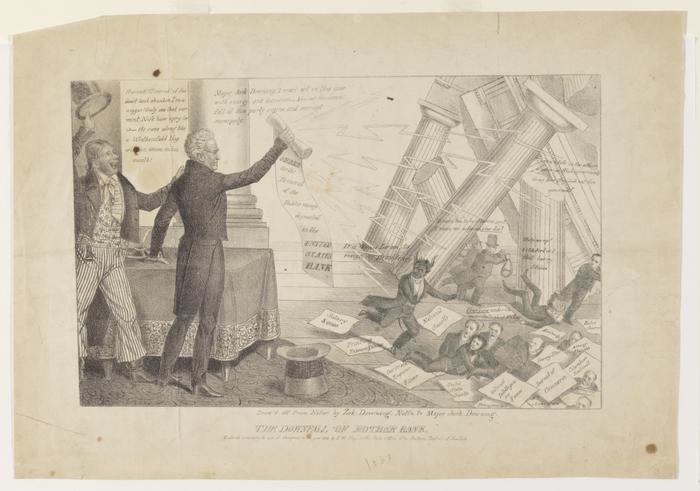Mordecai Manuel Noah, 1785-1851
Entity Type:
IndividualIdentifier:
ENT.000003535Biography:
Born Philadelphia July 19, 1785, Mordecai Manuel Noah was a prominent writer, newspaper editor, and political officeholder of the new republic. The son of Manuel Noah, who had immigrated from Mannheim, Germany, and served in the Revolutionary War, and Zipporah Phillips, whose grandfather had served as the hazan of the Shearith Israel Congregation of New York—the oldest Jewish congregation in the United States. Orphaned at a young age, Noah worked as a carver’s apprentice and studied at the Franklin Library. He later worked as a clerk for the auditor’s office in Philadelphia before moving to Harrisburg to become a reporter for the Pennsylvania Legislature. By the outbreak of the War of 1812, Noah was editor of the City Gazette of Charleston, SC, and an outspoken advocate of war with Britain.In 1813 the 28-year-old Noah was appointed US Consul to the Kingdom of Tunis, but his position was recalled. Although the likely reason for his recall was that he spent more money than had been authorized by the government to ransom an American ship’s crew that had been taken by Algerian pirates and enslaved, the reason given in President James Monroe’s letter was that Noah’s religion, Judaism, represented “an obstacle to the exercise of his function.” This decision aroused outrage among many American Jews and non-Jews alike.
Upon his return to the United States, Noah settled in New York, where he became sheriff of the city and county of New York in 1822, was appointed surveyor and inspector of the Port of New York by President Andrew Jackson in 1829, and became a judge of the New York Court of Sessions in 1841. Noah also founded and edited a number of newspapers, including the National Advocate (1816-1824), and the New York Enquirer (1826-1829), which soon merged with James Watson Webb’s Courier to become the New York Courier and Enquirer. Webb and Noah’s partnership dissolved over the editors’ disagreement over the Bank of the United States; Noah supported President Jackson’s controversial decision to remove government deposits from the bank, while Webb opposed it. In 1834, Noah founded the Evening Star, the country’s leading Whig newspaper, and in 1842 established the Union, which was later renamed Noah’s Sunday Times and Messenger. Noah was also an active member of New York’s Tammany Hall political machine and helped to found what would become New York University.
In addition to his impressive journalistic career and his involvement in politics, Noah was also a prolific writer, penning popular plays such as The Fortress of Sorrento (1808), She Would be a Soldier (1819), and The Siege of Tripoli (1820). Noah was also a proto-Zionist who attempted to found a Jewish homeland in the United States. In 1820, Noah petitioned the US government to purchase Grand Island, located in the Niagara River near Buffalo, NY, in the hopes of making this land a state for Jewish immigrants. He purchased Grand Island in 1825 and dubbed it “Ararat” in a lavish ceremony marked by proclamations, pageants, and orations. Noah shortly realized that his plan was unworkable, however, and advocated establishing a Jewish state in Palestine, anticipating the ideas of modern Zionism by a good fifty years.
Noah married Rebecca Jackson (no relation to Andrew Jackson), with whom he had seven children. He died following a stroke in 1851.

Related Object: Downfall of Mother Bank political cartoon, 1833